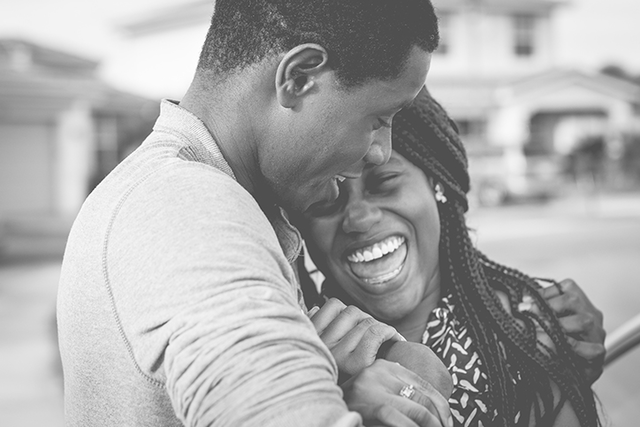Death is no laughing matter.
But some studies have found that when dealing with grief — laughter really can be the best medicine.
Discussing Death
Who better to talk about comedy and grief than stand-up comedians? There’s a podcast called Griefcast that focuses on interviews with stand-up comedians and how they’ve used their acts to help cope with the loss of a parent or sibling.
A big take away from the podcast is that death isn’t easy to discuss, but for some, injecting a little humor can be a way to start opening up and begin healing.
An article in the Guardian by Brian Logan summed up the podcast and the topic of grief and humor perfectly, saying that comedy has “something valuable to bring to the conversation about grief: an absence or rejection of piety; an impulse to be funny, the shock of which can clear the way for something new; and the reassurance that the sadness isn’t indomitable, that there’s still laughter in the world.”
But humor doesn’t have to be limited to just stand-up comedians. Humor can help others heal and overcome grief in their everyday life.
Health Benefits of Humor
Scientists and psychologists both think that a good sense of humor has everyday benefits.
According to the Mayo Clinic, a good laugh can:
- Stimulate your heart, lungs, and muscles with oxygen-filled air.
- Release feel-good endorphins in your brain.
- Reduce physical and mental stress and soothe muscle tension.
- Improve your immune system.
- Release natural painkillers in the body.
- Improve your overall mood and satisfaction, and combat anxiety.
A little laughter can go a long way in terms of overall health. But when facing a loss, it’s the last thing most people feel like doing. However, some studies show that — given time — humor can have an overwhelming impact on our healing process.
Humor and Grief
A 2009 study titled Humor, Laughter & Happiness in the Daily Lives of Recently Bereaved Spouses took a look at humor and grief.
The study examined 292 recently-widowed men and women and recorded both their belief in the importance of positive emotion (such as humor), and their actual experience of positive emotions and its impact on bereavement in their daily lives.
The study lasted several months, and what researchers found was that “experiencing humor, laughter and happiness was strongly associated with favorable bereavement adjustments (lower grief and depression) regardless of the extent to which the bereaved person valued having these positive emotions.”
To put it simply, the more they laughed and experienced positive emotions such as humor, the better they felt.
It’s not the only study to report such findings. Several reports and studies have found that humor is an effective tool in grief counseling and recovery. In fact, it’s said that the use of humor as part of the healing process dates as far back as Hippocrates when clowns and musicians were a part of the Ancient Greek’s prescriptions for healing.
Humor and Healing for Your Families
Humor helps us cope. And for some families dealing with loss, it’s that little laugh that can help them go a long way toward healing.
Here are some simple tips you can suggest for families to cope with humor and begin healing after a loss. (It’s also important to remember that humor isn’t the answer for everybody because grief will be a different experience for everyone).
- Share your funniest stories about a loved one with others. It’s a way to relive memories and celebrate the life of a person.
- Keep a box of memories. Write down a list of your funniest memories on cards or a journal as they come to you. On days when you’re feeling down, take a look at the memories you’ve written — especially around important anniversaries or holidays.
- Join a laughter yoga class. Laughter yoga? Apparently, it’s a real thing, and it works. It’s a yoga and exercise routine that’s designed around — you guessed it — laughter. Those who’ve signed up for classes have expressed an overall improved mood, positive attitude, and decreased stress and feelings of sadness.
- Rewatch favorite movies. Have a movie night when you’re feeling blue and rewatch old comedies that you and your loved one enjoyed. It’s a simple way to spark memories and smiles.
Do you have examples or stories of how humor has helped a family heal? Share with us in the comments below!





Thanks for helping me understand the benefits of humor and how it can help cope with grief. I found it interesting when you said that laughing can help reduce physical and mental stress while also soothing muscles. By finding a good method to help cope with grief and put a smile back on everyone’s face, comedy can really be beneficial to people.
Humor the best to help the bereved